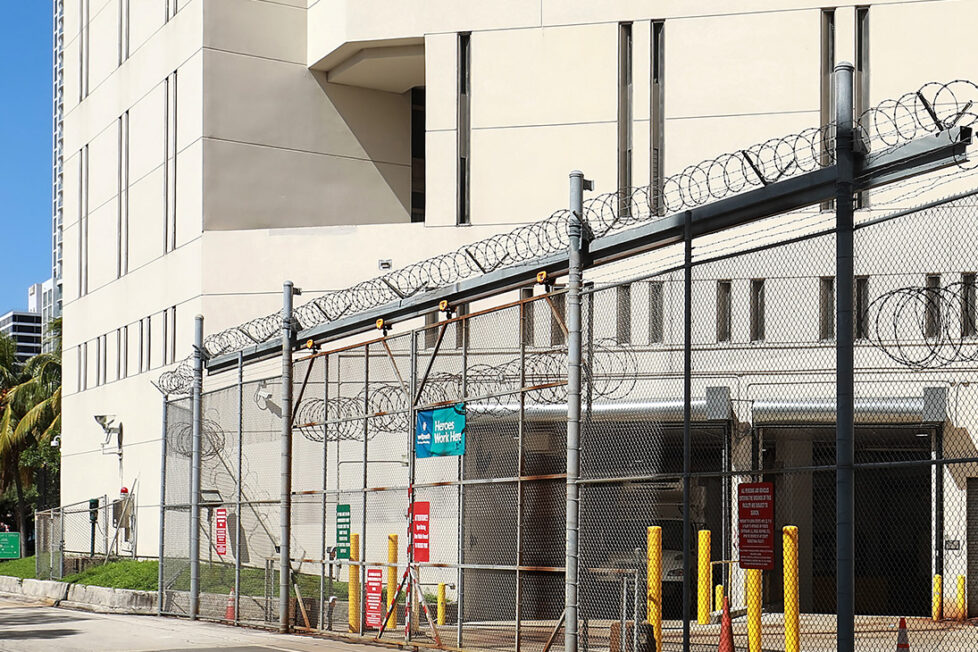New report outlines social interventions to end mass incarceration and improve public safety


By: Stacy M. Brown / NNPA
As the United States commemorates 50 years of mass incarceration, researchers and experts call for a comprehensive reimagining of the public safety infrastructure to prevent another 50 years of this troubling trend.
The Sentencing Project, a leading criminal justice reform organization, has released a groundbreaking report titled “Ending Mass Incarceration: Safety Beyond Sentencing,” outlining five social interventions that can pave the way to a safer, fairer, and more equitable future for America’s communities.
The report sheds light on the startling statistics, revealing that the U.S. prison population has expanded by a staggering 500% since 1973.
However, it also highlights some positive developments, with the prison population declining by 25% since its peak in 2009.
Twenty-one states have taken steps to partially or fully close correctional facilities since 2000, signaling a trend of prison repurposing for community and commercial use.
Despite those changes, the current pace of de-incarceration, averaging 2.3% annually since 2009, indicates that it would take until 2098 to return to the prison population of 1972.
The report emphasizes the need for social interventions and legislative reforms.
Liz Komar, Sentencing Reform Counsel at The Sentencing Project, and co-author of the report, stressed the importance of reimagining public safety infrastructure.
“Policymakers can create safer, fairer, and more equitable communities by combining social interventions that address some of the root causes of crime with legislative reforms that reduce the harm of the criminal legal system,” Komar insisted.
Further, the report noted that deep racial and ethnic disparities exist throughout the criminal legal system, from the point of arrest to post-incarceration experiences that include restrictions on voting and employment.
“Black, Latinx, and Indigenous residents experience cumulative disadvantage at every stage of the criminal legal system because they are more likely to be arrested, convicted, and receive more punitive criminal sanctions than white individuals,” the authors wrote.
“Black adults are incarcerated in state prisons at nearly five times the rate of whites,” they continued, noting that, in 2019, Black youth were 4.4 times as likely to be incarcerated in the juvenile justice system as were their white peers.
The report offers five key recommendations for policymakers and community members to create a safer society without relying on mass incarceration:
1- Implement community-based safety solutions: Violence interruption programs and changes to the built environment, such as adding green spaces and improving street lighting, can decrease violence without resorting to incarceration.
2- Transform crisis response: Investing in trained community-based responders with expertise in public health approaches can reduce police shootings, improve safety, and decrease incarceration during crises, including mental health emergencies.
3- Reduce unnecessary justice involvement: Decriminalizing certain non-public safety offenses and implementing diversion programs can limit police contact and court involvement, ultimately improving safety and reducing unnecessary incarceration.
4- End the drug war: Shifting away from criminalizing drug use and focusing on public health solutions, such as harm reduction services and supervised consumption sites, can improve public health and safety.
5- Strengthen opportunities for youth: Providing summer employment opportunities and training youth in effective decision-making skills can prevent their involvement in the criminal legal system.
Nicole D. Porter, Senior Director of Advocacy with The Sentencing Project and co-author of the report, underlines the effectiveness and cost-efficiency of these interventions.
“Research shows these interventions are more effective at reducing crime and improving public safety, more cost-effective, and more equitable than punitive responses that rely on over policing and mass incarceration,” Porter stated.
Researchers asserted that the report serves as a beacon of hope and an urgent call to action for policymakers, community leaders, and citizens alike.
They insist that embracing these social interventions and legislative reforms allows the United States to forge a safer, more equitable future free from the burden of mass incarceration.
“At every stage of the criminal legal system, and before harm ever arises, there are promising ways that communities can protect public safety and take steps toward ending mass incarceration,” The Sentencing Project researchers concluded.
“State legislatures and the federal government should invest in these interventions and incentivize their adoption. Communities have already begun building the necessary interventions to reduce America’s reliance on prisons.
“Social interventions that address the root causes of crime and legislative reforms that reduce the harm of the criminal legal system can move the U.S. toward a safer, fairer, and more equitable future.”
